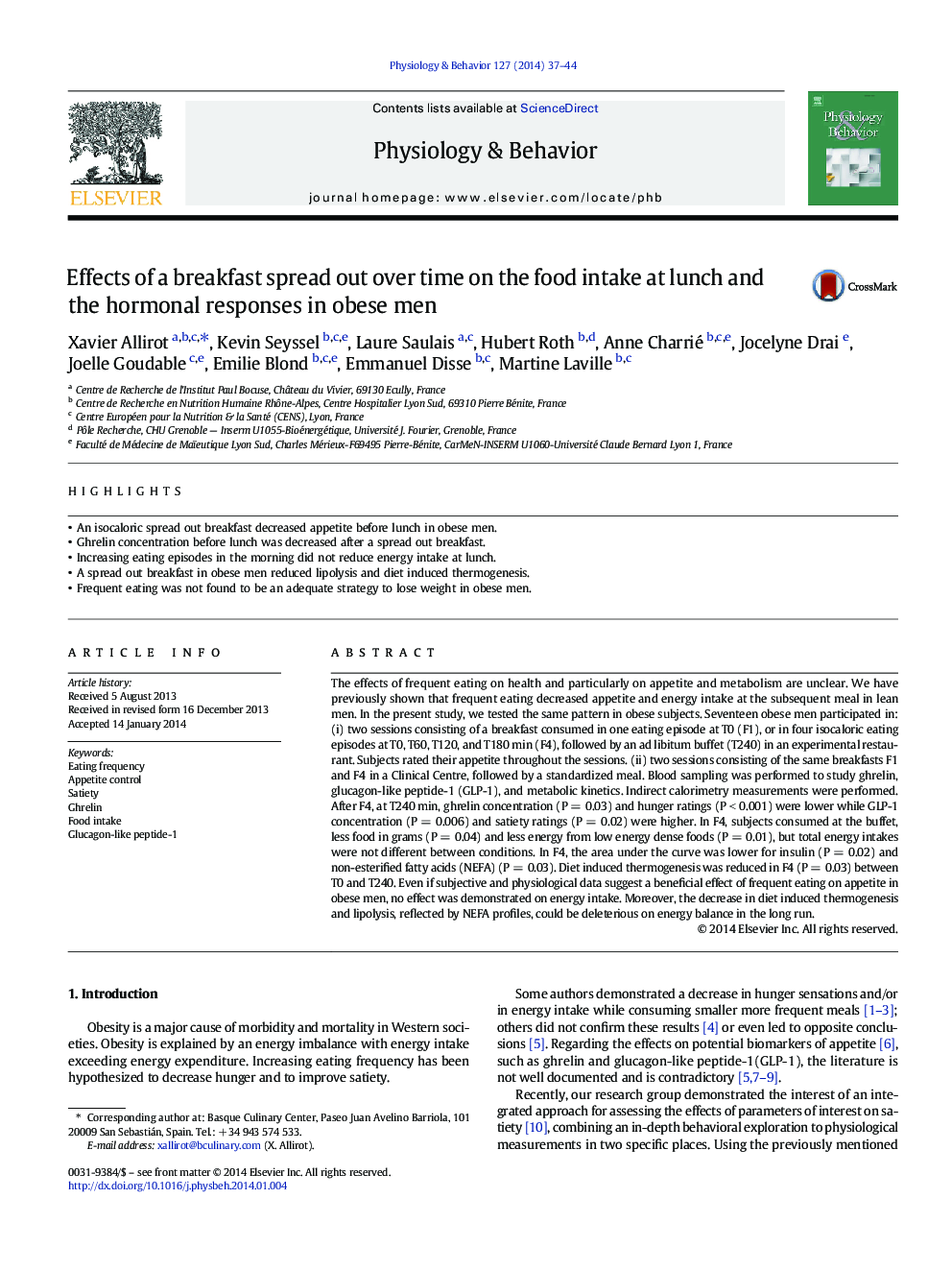| Article ID | Journal | Published Year | Pages | File Type |
|---|---|---|---|---|
| 2844296 | Physiology & Behavior | 2014 | 8 Pages |
•An isocaloric spread out breakfast decreased appetite before lunch in obese men.•Ghrelin concentration before lunch was decreased after a spread out breakfast.•Increasing eating episodes in the morning did not reduce energy intake at lunch.•A spread out breakfast in obese men reduced lipolysis and diet induced thermogenesis.•Frequent eating was not found to be an adequate strategy to lose weight in obese men.
The effects of frequent eating on health and particularly on appetite and metabolism are unclear. We have previously shown that frequent eating decreased appetite and energy intake at the subsequent meal in lean men. In the present study, we tested the same pattern in obese subjects. Seventeen obese men participated in: (i) two sessions consisting of a breakfast consumed in one eating episode at T0 (F1), or in four isocaloric eating episodes at T0, T60, T120, and T180 min (F4), followed by an ad libitum buffet (T240) in an experimental restaurant. Subjects rated their appetite throughout the sessions. (ii) two sessions consisting of the same breakfasts F1 and F4 in a Clinical Centre, followed by a standardized meal. Blood sampling was performed to study ghrelin, glucagon-like peptide-1 (GLP-1), and metabolic kinetics. Indirect calorimetry measurements were performed. After F4, at T240 min, ghrelin concentration (P = 0.03) and hunger ratings (P < 0.001) were lower while GLP-1 concentration (P = 0.006) and satiety ratings (P = 0.02) were higher. In F4, subjects consumed at the buffet, less food in grams (P = 0.04) and less energy from low energy dense foods (P = 0.01), but total energy intakes were not different between conditions. In F4, the area under the curve was lower for insulin (P = 0.02) and non-esterified fatty acids (NEFA) (P = 0.03). Diet induced thermogenesis was reduced in F4 (P = 0.03) between T0 and T240. Even if subjective and physiological data suggest a beneficial effect of frequent eating on appetite in obese men, no effect was demonstrated on energy intake. Moreover, the decrease in diet induced thermogenesis and lipolysis, reflected by NEFA profiles, could be deleterious on energy balance in the long run.
